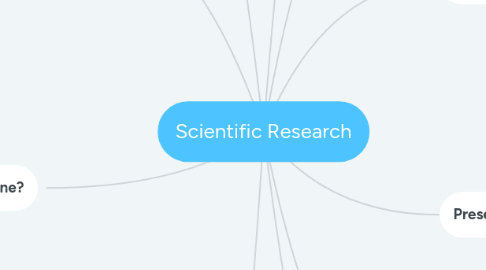
1. steps to avoid scientific dilemma
1.1. Know the rules
1.1.1. How are researchers supposed to behave?
1.1.2. Who says so?
1.2. Know your rights & responsibilities
1.2.1. co-authorship
1.2.2. Ownership of IP
1.2.3. Conflict of interest
1.3. Learn to recognize the most common ethical mistakes
1.3.1. Misappropriation of text or ideas
1.3.2. Deceptive reporting of research results
1.3.3. Breach of confidentiality
1.4. Avoid conflicts in your research group
1.4.1. try to resolve them with minimal discomfort
1.5. Learn from other's mistakes
2. How to conduct science? Incorrect answers may lead to scientific misconduct such as
2.1. Negligence which is deviation from methodological norms
2.2. Deliberate dishonesty which deviates from moral norms
2.3. Mentonian norms
2.3.1. Universalism
2.3.1.1. Independent of sociopolitical/personal status
2.3.1.2. Independent of race, color, creed.
2.3.2. Communalism
2.3.2.1. common ownership in scientific goods
2.3.2.2. knowledge should be public
2.3.2.3. freedom of exchange
2.3.3. Disinterestedness (objectivity)
2.3.4. Organized skepticism
2.3.4.1. Should be exposed to critics before being accepted
2.3.4.2. Scientists should be free to question them
3. Where science is done?
3.1. Universities
3.2. In government labs or funding
3.3. Military labs or funding
3.4. Industry labs or funding
4. Bad science is an idea or hypothesis based on error in
4.1. methodology
4.2. reasoning
4.3. understanding
4.4. poor research
4.5. poorly designed experiments
4.6. accidental or deliberate misinterpretation of data
4.7. lack of research integrity, which doing science in a way allowing others to have trust in your methods and results
4.7.1. Use of honest and verifiable methods
4.7.2. Reporting results with adherence to rules
4.7.3. Following accepted professional codes or norms
4.7.4. Consequences of Lack of integrity
4.7.4.1. Debarment from agency funding or supervision and certification
4.7.4.2. Stop research
4.7.4.3. Cancel the degree
4.7.4.4. Formal apology
4.7.4.5. Ethical traning
4.7.4.6. Witholding pay
4.8. Research Misconduct (FFP)
4.8.1. Fabrication in research or results
4.8.2. Falsification
4.8.3. Plagiarism
4.8.4. Does not include honest errors or differences of opinion
5. What is science?
5.1. The search for thruth
5.2. A quest for objective knowledge
5.2.1. the nature and its behaviour (natural science) eg. physics
5.2.2. aspects of human behaviour (social sciences) eg. anthropology
5.2.3. Objective knowledge is things that can be observed or reproduced. eg. Tanta is located in Egypt
6. Goals of conducting science
6.1. Discover truth or satisfy curiosity
6.2. Advance knowledge
6.3. Become Famous and well respected! 😕
6.4. Get and keep a good job
6.5. Live well and happy
7. Research Ethics covers
7.1. Use of human subjects (Informed consent)
7.2. Use of animal subjects (Appropriate care or use)
7.3. Moral debates (nuclear weapons, genetic screening, etc)
7.4. Professional issues (IP rights, authorship, confidentiality, etc)
8. Preserving knowledge
8.1. Knowledge is awareness or understanding of something or someone which is acquired by experience, education, discovering, or learning
8.2. Knowledge is lost without written records
8.3. Knowledge could not be widely circulated with no effective duplication
8.4. Scientific Papers Format (IMRAD)
8.4.1. Introduction Material (Experimental section)
8.4.2. Results And Discussion
